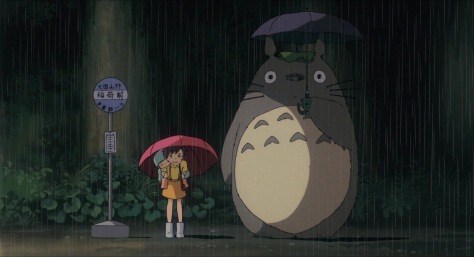By Dennis Hartley
(Originally posted on Digby’s Hullabaloo on November 23, 2013)

In the wake of the recent LAX shooting, The Islamic Monthly ran an interesting piece by its Senior Editor Arsalan Iftikhar, who made this pithy (and prescient) observation:
Now, the same right-wingers who would shout “terrorism” from the rooftops if the LAX airport shooter was a Muslim will likely avoid using the word “terrorism” at all since the shooter was a white Italian dude from Jersey. They will characterize this non-Muslim terrorist as a crazy kooky loner whose undiagnosed mental-health issues or work-related stress probably led to the attacks.
Also, these same right-wingers who always call for the “racial profiling” of Arabs and Muslims after every terrorist attack will now be silent since they would now have to call for the racial profiling of every 20-something white dude from New Jersey.
As if on cue, there’s a new indie called Torn (running in limited engagements) that tackles that meme head on. Set in a quiet Bay Area bedroom community, Jeremiah Birnbaum’s modestly budgeted drama opens with a dreamy, lazily-focused montage of pure, tranquil suburban-American imagery: shoppers at the mall, doing what shoppers do.
Shortly after the segment dissolves into heavenly white light (rarely a good sign), we learn through a TV news bulletin that Something Terrible Has Happened. There’s been an explosion at the mall (possibly a gas line), and there are fatalities.
The TV is in the home of an upscale Pakistani-American couple, Maryam (Mahnoor Baloch) and her husband Ali (Faran Tahir), both just home from work and setting the table for dinner. On their answering machine, they hear a message from their son, telling them he’s headed for the mall after school (I don’t think it’s a spoiler to tell you what that portends).
As the couple begins to deal with their soul-shattering grief in the days following the tragedy, Maryam forms a bond and strikes up a friendship with a woman named Lea (Dendrie Taylor), a divorced, financially-strapped single mother who has also lost a teenage son in the incident.
However, Maryam and Lea’s burgeoning relationship is about to hit a major roadblock. Police investigators discover irrefutable evidence that the explosion was caused by a homemade bomb. The detective in charge of the investigation (John Heard) informs Maryam and Ali that their late son is the prime suspect, and that the FBI has been called in.
Suspicion weighs even more heavily on the family when the local media dredges up the fact that Ali himself had been picked up and interrogated after 9/11 (although never charged). Lea gets caught up in the rush to judgment, lashing out at Maryam and then giving her the cold shoulder. Lea’s moral superiority is short-lived. It turns out another teenager killed in the explosion had been bullying her son; he had vowed revenge and is now being investigated as well (the shoe is now on the other foot).
Despite the setup, the odd red herring and the fact that there is a “reveal” in the final shot, Birnbaum’s film is not a “whodunit” so much as a “why do we?”. Why do we rush to judgment? Why do we always fear the Other? And why do we always find it so difficult to look in the mirror?
Screenwriter Michael Richter wisely keeps the police procedural elements on the back burner, instead focusing on these central questions, via the shifting dynamics of Maryam and Lea’s relationship.
In other words, by handing each protagonist a glass house and a bag of rocks, he is leveling the playing field; thereby he is daring the viewer (by proxy) to cast the first stone after examining his or her own fears and prejudices. And for the most part, this device works quite well, thanks to strong performances from Baloch and Taylor. The message has been proffered many times before, but until it finally “catches on”, perhaps it cannot be repeated enough.







